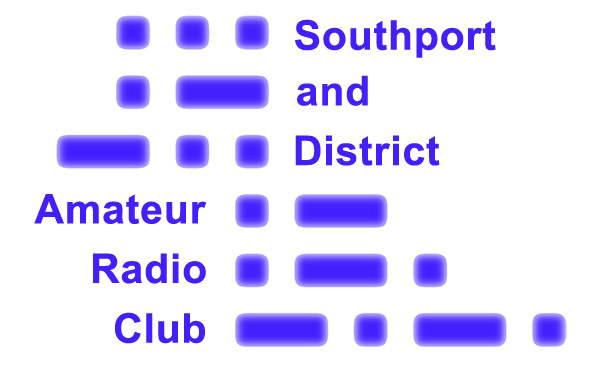HOW TO GET A LICENCE:
FOUNDATION COURSE:
The entry level qualification to Amateur Radio is the Foundation License. It is designed to get you involved in amateur radio as quickly as possible. However, before you are allowed to transmit unsupervised it is important that you demonstrate that you know a little bit about how your radio works, the dangers of interfering with other radio users, how not to upset your neighbours or your parents (if you are a young person) and the rules and regulations of holding an Amateur Radio transmitting license.
This knowledge can be obtained in one of two ways; through self-study, or a taught course. The Southport & District Amateur Radio Club runs self-study courses which culminate with two classroom-based sessions where you will be required to demonstrate the practicalities of operating an Amateur Radio transmitter through a series of practical assessments and other knowledge gained through the sitting of a short multiple-choice test.
Don’t be afraid of the thought of having to undertake practical assessments and a short test. They are not there to catch you out, simply to ensure that know how to run your station safely and in a manner that it causes as little interference to other users of the radio spectrum – remember, radio waves can travel right around the world and beyond, so those users could be on the other side of the globe, or even out in to space.
All of our classroom sessions are run in a friendly informal atmosphere by experienced radio amateurs to put you at your ease.
At the end of the test we will inspect your test paper and provide you with the mark we think you will be awarded. We will then post the test papers to the Radio Society of Great Britain (RSGB) as soon as we can and they will mark them, informing both you and Ofcom (the organisation that will give you your Amateur Radio callsign). The whole process, from the RSGB receiving your test papers to you receiving notification of your actual result, will take approximately ten working days, but this can be extended if the RSGB receives a large number of test papers to mark from different clubs around the country.
Once you have received notification that you have passed the practical assessments and test you will be able to contact Ofcom to arrange for a callsign to be issued to you.
In the unfortunate event that you are not successful, your practical assessment results will remain valid for one year. This is to give you enough time to revise your theory and retake the test without having to undertake the practical assessments that you successfully completed the first time around.
Once your new callsign has been issued to you will be able to operate an Amateur Radio station, in accordance with the rules and regulations applicable to Foundation Licence holders, without supervision.
We look forward to speaking to you with your new callsign soon.
INTERMEDIATE COURSE:
Once you have gained experience at the Foundation level we are sure you will want to take the next step up – this is the Intermediate Amateur Radio licence. The Intermediate licence gives access to the Intermediate frequency allocations within the amateur bands and Permitted power levels are increased to 50 watts.
To obtain the Intermediate licence it is advisable to take a training course. This course is longer than the Foundation course and aims to teach many of the fundamentals of radio in a stimulating way by actually undertaking practical tasks such as soldering, building a small project and a variety of other exercises building on the experience you have gained as a Foundation licence holder.
After completing the course candidates sit the Intermediate Licence Examination. Again this examination is a multiple-choice test based on what was learned on the course, covering the basic concepts of radio operating on the amateur bands and the licence conditions. With both of these successfully completed an Intermediate licence can be applied for.
Our courses are open to anybody who wants to undertake them, you do not have to be a member of the Southport and District amateur radio club.
For more information please contact us.
